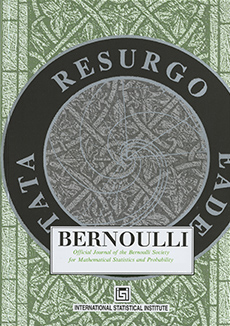Abstract
A popular class of problems in statistics deals with estimating the support of a density from n observations drawn at random from a d-dimensional distribution. In the one-dimensional case, if the support is an interval, the problem reduces to estimating its end points. In practice, an experimenter may only have access to a noisy version of the original data. Therefore, a more realistic model allows for the observations to be contaminated with additive noise.
In this paper, we consider estimation of convex bodies when the additive noise is distributed according to a multivariate Gaussian (or nearly Gaussian) distribution, even though our techniques could easily be adapted to other noise distributions. Unlike standard methods in deconvolution that are implemented by thresholding a kernel density estimate, our method avoids tuning parameters and Fourier transforms altogether. We show that our estimator, computable in time, converges at a rate of in Hausdorff distance, in accordance with the polylogarithmic rates encountered in Gaussian deconvolution problems. Part of our analysis also involves the optimality of the proposed estimator. We provide a lower bound for the minimax rate of estimation in Hausdorff distance that is .
Citation
Victor-Emmanuel Brunel. Jason M. Klusowski. Dana Yang. "Estimation of convex supports from noisy measurements." Bernoulli 27 (2) 772 - 793, May 2021. https://doi.org/10.3150/20-BEJ1229
Information





